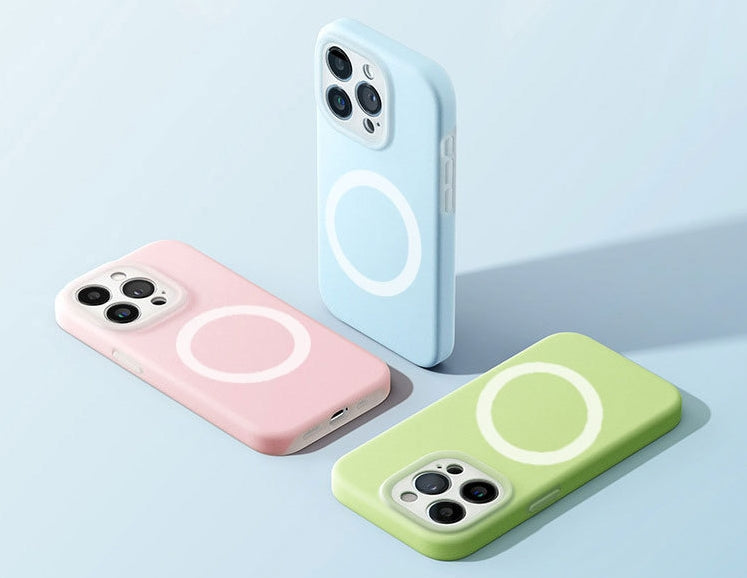
Choosing the Perfect Phone Case Material: A Comprehensive Guide
When it comes to choosing the right phone case, the material plays a crucial role in determining not just the look and feel but also the durability and protection level of your device. In this guide, we'll walk you through the pros and cons of various popular materials used in phone cases, helping you make an informed decision.
1. Acrylic Cases

| Advantages | Disadvantages |
|---|---|
| Thinner and lighter compared to other materials. High-quality feel and excellent transparency, which doesn’t affect the phone's original appearance. Highly durable, with excellent resistance to wear and tear. |
Higher production cost, making it more expensive. Not slip-resistant, prone to scratches. Poor heat resistance and dissipation. |
2. Leather Cases

| Advantages | Disadvantages |
|---|---|
| Better heat dissipation. Comfortable feel and doesn’t easily damage the phone's body. Provides good protection against shocks. Exquisite craftsmanship with a delicate and luxurious appearance. |
Expensive. Requires maintenance, not water-resistant. Can yellow over time, not resistant to dirt. |
3. PU Leather Cases

| Advantages | Disadvantages |
|---|---|
| Thin and comfortable to the touch. Oil-resistant, not easy to stain. Good flexibility, does not deform easily. Provides all-around protection with good slip resistance. |
Higher cost. Poor heat dissipation. Lower durability and not resistant to yellowing or dust. |
4. PC Cases

| Advantages | Disadvantages |
|---|---|
| Perfectly fits the phone, thinner and lighter. Strong hardness, good wear resistance, and toughness. High-definition prints that do not fade. Easy to clean and does not yellow. |
Not easy to disassemble, prone to scratches, shorter lifespan. Prone to oil marks and lacks slip resistance. |
5. TPU Cases

| Advantages | Disadvantages |
|---|---|
| Commonly used material in custom phone cases, soft and elastic. Provides all-around protection with good impact resistance. Highly practical, resistant to oil, water, and bacteria. |
Prone to dust accumulation, hard to clean. Prone to yellowing and lacks slip resistance. |
6. Silicone Cases

| Advantages | Disadvantages |
|---|---|
| Soft and comfortable to the touch with good slip resistance. Often features an internal textured layer for excellent shock absorption, providing full protection for the phone. |
Tends to absorb dust and is difficult to clean. Compared to other materials, silicone cases tend to be thicker, less heat-dissipating, and can easily accumulate heat. |
We Recommendations
- Focus on Durability and Affordability: If durability is your top priority, TPU cases should be your go-to choice. They're affordable, lightweight, and offer a soft, comfortable feel. Cleaning is also a breeze. Choose a case with air-cushioned corners for superior drop protection!
-
Enhance Appearance: If you value both appearance and durability, these materials are worth a try:
- Liquid Silicone: Silky smooth with a premium feel.
- PC/TPU Hybrid: A perfect blend of aesthetics and practicality, with a mirror-like PC back for added style.
- Best of Both Worlds: A PC/Acrylic outer shell combined with a silicone base provides dual-layer protection. The silicone base offers perfect protection, while the PC shell is thin and features high-definition prints with excellent scratch and drop resistance.
- PC Backplate + TPU Frame: If you care about both appearance and balanced performance, then a case with a PC backplate and TPU frame is your ideal choice. PC is a hard material that can be made very thin while still providing strong protection, offering excellent support for the phone case's frame. TPU, on the other hand, is a softer material that, when used for the phone case's frame, ensures the phone is protected from any wear and tear, including ease of removal.










